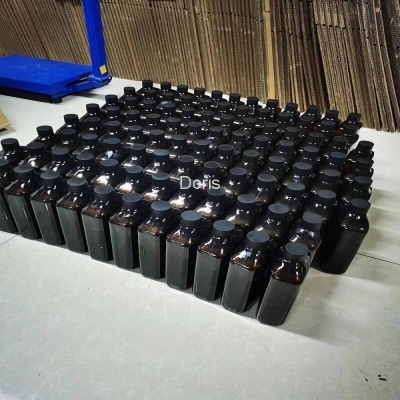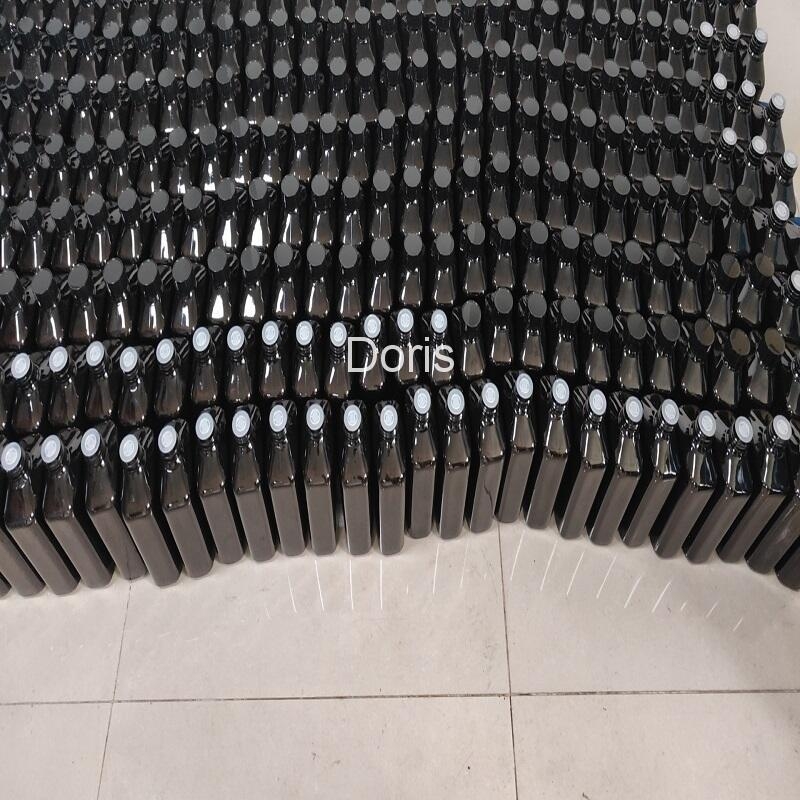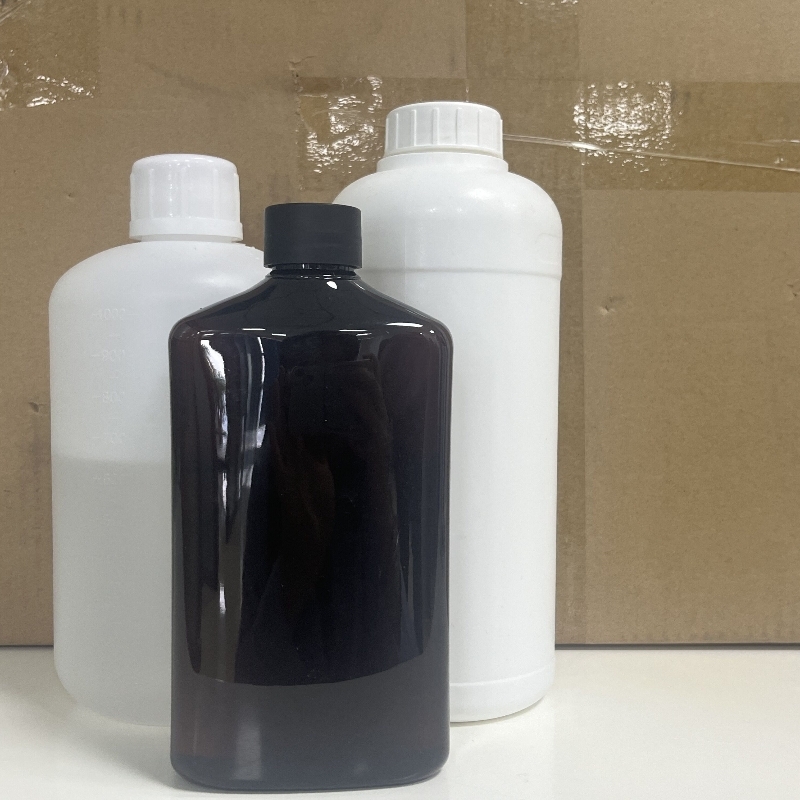The highest price cut for cancer drugs is 50%. The national health insurance negotiation list is released this week
-
Last Update: 2016-05-18
-
Source: Internet
-
Author: User
Search more information of high quality chemicals, good prices and reliable suppliers, visit
www.echemi.com
Source: the first financial daily reported on May 18, 2016 that the first batch of long-awaited national health insurance negotiations is to be officially announced this week—— After half a year's hard negotiation process, the four pharmaceutical companies that have finally been selected are covered by multinational pharmaceutical companies and local innovative pharmaceutical companies Oncology drugs: if there is no accident, the first batch of the long-awaited national health care negotiations will be officially announced this week "At the last minute, one cancer drug (enterprise) retreated, and the final shortlisted varieties are likely to become four." On the 18th, people close to the national health insurance negotiation who did not want to be named disclosed to the first financial reporter According to the exclusive information previously confirmed by first finance and economics, the first five varieties of national drug price negotiation are: gefitinib, erlotinib and exetinib for the treatment of advanced non-small cell lung cancer, and Werder (GSK) for the treatment of chronic hepatitis B and lenalidomide for the treatment of multiple myeloma The pharmaceutical companies involved are AstraZeneca in the UK, Roche in Switzerland, Beida in Zhejiang, GlaxoSmithKline in the UK and new base pharmaceutical in the US As the national "purchasing" parties of 16 departments led by the health and Family Planning Commission negotiate rules with five pharmaceutical enterprises respectively, the final standards and enterprise "price reduction" mode are not unified "It has been discussed (judged) since last year According to the acceptable way of the enterprise's own varieties and the price reduction range, we come to talk one by one, and the agreement is also signed one by one." "Each company has its own pricing principles, and multinational companies need to maintain the stability of the global price system, which is not an easy process," the source told first finance In March this year, Li Bin, director of the national health and Family Planning Commission, publicly stated that the national health and Family Planning Commission has selected about five drugs related to cancer treatment and treatment of major diseases as a pilot for negotiation Through negotiation, the price of patent drugs and imported drugs with relatively expensive prices has decreased by more than 50% Ma Xiaowei, deputy director of the national health and Family Planning Commission, further said that after the success of the drug negotiations, the health and Family Planning Commission will consider including it in the relevant drug reimbursement catalogue, so that the drug price will be reduced At the same time, after the nationwide implementation of serious illness insurance, more than 20 kinds of diseases should be further compensated; while negotiating the price reduction, the health and Family Planning Commission also paid attention to the research and development and localization of generic drugs in China But the list, which was planned to be released after the national two sessions in March, has been delayed until now because of the sudden vaccine safety incident Because of the national payment mechanism of medical insurance, the medical insurance price negotiation, as the core of drug price negotiation, has always been considered as the core breakthrough point of China's drug price reform - and in this most sensitive and most valued field of medical insurance, how the drug price negotiation will be applied will undoubtedly become the wind vane for the follow-up drug price negotiation to be carried out nationwide According to the published data, according to international experience, the reference basis of drug price is mainly pharmacoeconomic evaluation, internal price reference and external price (foreign price) reference The criteria for drug price negotiation vary little from country to country Take Italy as an example, it includes: analyzing the cost-effectiveness of drugs with poor efficacy, comparing the risk-effectiveness of alternative drugs, comparing the daily treatment cost of drugs with the same efficacy, evaluating the economic impact of the national health care system, evaluating the market share of new drugs, and European countries Price and consumption data, etc "Lung cancer and chronic hepatitis B, the diseases targeted by the first batch of selected varieties, are currently relatively high incidence and heavy drug burden in China, which is a basic principle We hope to reduce their burden from the most obvious varieties and diseases felt by the public." Said the person to first finance According to statistics, the incidence rate of lung cancer in China is increasing by 26.9% annually Lung cancer has become the leading cause of death in China It is estimated that by 2025, the lung cancer patients in China will reach 1 million, and become the world's largest lung cancer A study on the economic burden of lung cancer patients in three level specialized hospitals shows that the average annual cost of patients is about 150 thousand yuan In 2015, Lu Yong, known as "the first person to buy anti-cancer drugs on behalf of others" in China, was withdrawn from the prosecution under the pressure of joint letters and public opinions from thousands of leukemia patients Before that, Lu Yong was prosecuted by Yuanjiang Procuratorate in Hunan Province for helping patients purchase generic drugs from India on behalf of others, and was kept in the watchhouse for 117 days As a result, the "high price life-saving medicine" of severe patients has become the topic center again In the current cancer treatment, targeted drugs are the main and effective treatment method - for patients with advanced lung cancer, if not targeted treatment, conventional chemotherapy and radiotherapy can survive for about one year; but after targeted treatment, it can last for three or four years However, due to the high cost of research and development, the current conventional lung cancer targeting drugs are very expensive AstraZeneca's "Iressa" in the UK costs 5000 yuan in 10 packs; Roche pharmaceutical's "troika" in Switzerland costs 4500 yuan in 7 packs; the newly launched "Kemena" in China costs 2750 yuan in 21 packs and takes 3 tablets a day, which is equivalent to the daily cost, which is 500 yuan / day, 650 yuan / day and 392 yuan / day respectively; the drug cost for a month is about 1.5 yuan 10000 yuan, 18000-19000 yuan, 11000-12000 yuan Link to the original text: http://news.pharmnet.com.cn/news/2016/05/18/444097.html
This article is an English version of an article which is originally in the Chinese language on echemi.com and is provided for information purposes only.
This website makes no representation or warranty of any kind, either expressed or implied, as to the accuracy, completeness ownership or reliability of
the article or any translations thereof. If you have any concerns or complaints relating to the article, please send an email, providing a detailed
description of the concern or complaint, to
service@echemi.com. A staff member will contact you within 5 working days. Once verified, infringing content
will be removed immediately.







